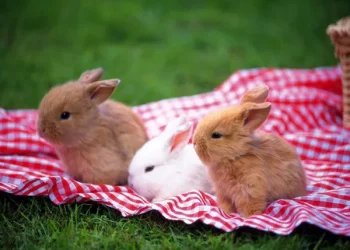Rabbits can make delightful and rewarding pets, but they require specific care and attention to thrive. For beginners, understanding what a rabbit needs can seem daunting. This comprehensive guide will break down the essential requirements for new rabbit owners, covering everything from basic necessities to more advanced care techniques. Whether you’re considering adopting a rabbit or are a new owner looking for detailed guidance, this article will help ensure you provide the best possible care for your furry friend.
Introduction to Rabbit Care
Rabbits are charming and gentle animals known for their playful and curious nature. However, they are also complex creatures with specific needs. Before bringing a rabbit into your home, it’s essential to understand their basic requirements and what makes them different from other pets. This section will introduce you to the fundamental aspects of rabbit care, setting the stage for more detailed discussions.
Choosing the Right Rabbit
Before delving into care specifics, it’s important to start with the right rabbit. Different rabbit breeds have varying needs and temperaments. Some factors to consider include:
Breed and Size
Rabbits come in various breeds and sizes, from small dwarf breeds to large giants. Smaller breeds like the Netherland Dwarf or Holland Lop may be suitable for smaller living spaces, while larger breeds such as the Flemish Giant require more room to move around. Understanding the breed will help you provide the appropriate space and care.
Temperament
Different breeds also have different temperaments. Some rabbits are more active and playful, while others are calm and laid-back. Researching the breed’s temperament can help match a rabbit’s personality with your lifestyle and preferences.
Creating a Safe and Comfortable Living Space
Rabbits need a safe, comfortable living space to thrive. This section covers the essentials of setting up your rabbit’s habitat.
Housing Options
Rabbits can be housed in various setups, including:
Indoor Cages: A large, well-ventilated cage is suitable for indoor rabbits. It should provide enough space for the rabbit to move around comfortably and stretch out.
Outdoor Hutches: If you plan to keep your rabbit outdoors, ensure the hutch is weatherproof, secure from predators, and spacious. Outdoor hutches should have a sheltered area and a run for exercise.
Bedding and Litter
Rabbits require clean and comfortable bedding. Use materials like hay, straw, or paper-based products. Avoid cedar or pine shavings, as they can be harmful to rabbits. For litter, use absorbent, non-toxic materials to keep the living area clean.
Enrichment and Space
Rabbits need plenty of space to explore and play. Provide toys, tunnels, and safe chew items to keep your rabbit entertained. A large exercise area or playpen is ideal for allowing your rabbit to stretch its legs and engage in natural behaviors.
Nutrition and Diet
A balanced diet is crucial for a rabbit’s health. Understanding their dietary needs will help prevent health issues and ensure they remain happy and healthy.
Hay: The Staple Food
Hay is the most important part of a rabbit’s diet. It provides essential fiber for digestive health and helps prevent obesity. Offer unlimited access to fresh hay, such as timothy hay or meadow hay.
Fresh Vegetables and Greens
In addition to hay, rabbits should be given a variety of fresh vegetables and leafy greens. Safe options include romaine lettuce, kale, and carrots. Introduce new vegetables gradually to avoid digestive upset.
Pellets and Treats
High-quality rabbit pellets can complement a rabbit’s diet but should not be the primary food source. Choose pellets specifically formulated for rabbits and avoid those high in seeds or fruits. Treats should be given sparingly and should be safe for rabbits.
Grooming and Health Care
Regular grooming and health care are essential for maintaining your rabbit’s well-being. This section will guide you through the basic grooming and health needs of rabbits.
Brushing and Shedding
Depending on the breed, rabbits may need regular brushing to manage shedding and prevent matting. Long-haired breeds, such as Angoras, require more frequent grooming than short-haired breeds.
Nail Trimming
Regular nail trimming is necessary to prevent overgrowth and discomfort. Use a small animal nail clipper and be cautious not to cut too close to the quick.
Veterinary Care
Routine veterinary check-ups are crucial for monitoring your rabbit’s health. Regular visits can help identify and address potential health issues early. Additionally, ensure your rabbit is spayed or neutered to prevent health problems and unwanted litters.
Understanding Rabbit Behavior
Understanding rabbit behavior is key to providing a happy and fulfilling life for your pet. This section explores common rabbit behaviors and how to address them.
Socialization and Bonding
Rabbits are social animals that thrive on interaction with their owners and other rabbits. Spend quality time with your rabbit to build trust and strengthen your bond. Gentle handling and positive reinforcement will help your rabbit feel secure.
Signs of Stress or Illness
Recognizing signs of stress or illness is crucial for timely intervention. Common signs of stress include hiding, aggressive behavior, or loss of appetite. If you notice any changes in behavior or health, consult a veterinarian.
Training and Enrichment
Training your rabbit can improve its behavior and make life more enjoyable for both of you. Basic training, such as litter box training, can be achieved with patience and consistency. Enrichment activities, like puzzle toys and interactive play, keep your rabbit mentally stimulated.
Preventive Measures and Safety
Ensuring your rabbit’s safety and preventing potential health issues are crucial aspects of responsible pet ownership.
Rabbit-proofing Your Home
Rabbits are curious and may chew on electrical cords or household items. Rabbit-proof your home by securing cords, removing toxic plants, and providing safe chew toys to satisfy their natural chewing instincts.
See Also: Can Rabbits Be Left Alone?
Vaccinations and Parasite Control
Rabbits can be susceptible to certain diseases and parasites. Consult your veterinarian about vaccinations and preventive treatments to protect your rabbit from common health issues.
Emergency Preparedness
Prepare for emergencies by having a first aid kit and knowing the location of the nearest emergency veterinary clinic. Familiarize yourself with basic first aid procedures for rabbits to handle minor injuries or health issues promptly.
Ethical Considerations and Responsible Ownership
Owning a rabbit comes with ethical responsibilities. This section emphasizes the importance of responsible pet ownership and the commitment required to provide a loving home for your rabbit.
Long-term Commitment
Rabbits can live for 10 to 15 years or more. Ensure you are ready for the long-term commitment involved in caring for a rabbit before adopting one.
Adoption and Breeder Choices
Consider adopting a rabbit from a shelter or rescue organization. If you choose to purchase from a breeder, ensure they follow ethical breeding practices and prioritize the health and well-being of their rabbits.
Education and Community Involvement
Educate yourself continuously about rabbit care and connect with other rabbit owners and experts. Joining rabbit-focused communities or organizations can provide valuable resources and support.
Conclusion
Caring for a rabbit involves a significant commitment of time, effort, and resources. By understanding the essential needs of rabbits and preparing to meet those needs, you can provide a happy and healthy environment for your furry friend. From creating a comfortable living space to ensuring proper nutrition and health care, each aspect of rabbit care contributes to the overall well-being of your pet. With proper preparation and ongoing attention, you can enjoy a fulfilling and rewarding relationship with your rabbit.
By following this guide, new rabbit owners can confidently embark on the journey of rabbit care, ensuring their pets receive the love and attention they deserve.
Related Topics:


























